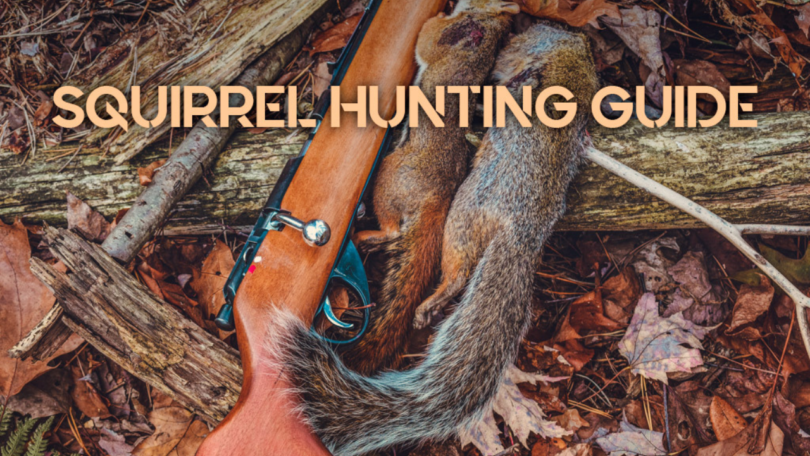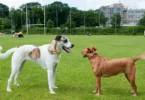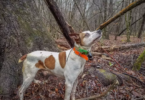Squirrel hunting with dogs is a thrilling and rewarding experience that combines the excitement of the chase with the satisfaction of a successful hunt. To make the most of your squirrel hunting adventures, it's crucial to equip yourself and your canine companion with the right gear and master the essential techniques. This comprehensive guide will provide you with everything you need to know about the equipment and techniques necessary for successful squirrel hunting with dogs.
Essential Equipment for Squirrel Hunting with Dogs
1. Proper Attire and Safety Gear
Squirrel hunting often takes place in dense woods and rugged terrain, so it's essential to wear appropriate clothing and safety gear to protect yourself and ensure a comfortable hunting experience.
Key Items:
- Sturdy, Waterproof Boots: Protect your feet from rough terrain and wet conditions.
- Hats and Sunscreen: Shield yourself from the sun's rays.
- Insect Repellent: Keep pesky bugs at bay.
- First-Aid Supplies: Be prepared for minor injuries with a well-stocked first-aid kit.
- Whistle: Use for communication and emergency situations.
- GPS Device: Ensure you can navigate and track your location in the woods.
2. Firearms and Ammunition
Choosing the right firearm and ammunition is crucial for effective squirrel hunting. The most popular choices are shotguns and small-caliber rifles.
Recommended Firearms:
- .22 Rifle: Offers precision and minimal damage to the meat.
- 20-Gauge Shotgun: Provides a good balance of power and spread for hitting moving targets.
- 12-Gauge Shotgun: Suitable for hunters who prefer more stopping power.
3. Dog Gear
Equipping your dog with the right gear is essential for their safety and effectiveness in the field.
Key Items:
- Collar with ID Tags: Ensure your dog wears a collar with your contact information.
- GPS Tracking Collar: Keep track of your dog's location in real-time.
- Protective Vest: Shield your dog from thorns, branches, and other hazards.
- Hydration System: Carry water and a portable bowl to keep your dog hydrated.
- First-Aid Kit for Dogs: Include items like gauze pads, bandage wrap, and antibiotic ointment.
4. Hunting Accessories
Having the right accessories can enhance your hunting experience and increase your chances of success.
Essential Accessories:
- Binoculars: Spot squirrels from a distance and verify their location in trees.
- Squirrel Calls: Mimic squirrel sounds to attract them.
- Game Carrier: Transport harvested squirrels easily.
- Knife: For field dressing and processing game.
Techniques for Successful Squirrel Hunting with Dogs
1. Training Your Squirrel Hunting Dog
Training your dog is the foundation of successful squirrel hunting. Start with basic obedience training and gradually introduce specialized hunting skills.
Training Steps:
- Basic Commands: Teach sit, stay, come, and heel.
- Scent Training: Use squirrel scent or tails to familiarize your dog with the target odor.
- Treeing Practice: Encourage your dog to bark and stay at the base of a tree when they locate a squirrel.
- Field Training: Expose your dog to real hunting environments to practice their skills.
2. Understanding Squirrel Behavior
Knowing how squirrels behave can give you an edge in the hunt. Squirrels are active during the early morning and late afternoon, making these the best times to hunt.
Behavioral Insights:
- Feeding Habits: Squirrels feed on nuts, seeds, and berries. Look for areas with abundant food sources.
- Movement Patterns: Squirrels often travel along tree branches and use downed logs as pathways.
- Treeing Behavior: Squirrels will climb trees to escape predators. Watch for signs of movement in the treetops.
3. Working with Your Dog
A successful hunt relies on effective teamwork between you and your dog. Here are some tips for working together in the field:
Tips for Collaboration:
- Follow Your Dog's Lead: Trust your dog's instincts and follow them as they track and tree squirrels.
- Stay Quiet: Minimize noise to avoid scaring off squirrels.
- Use Hand Signals: Communicate with your dog using hand signals to maintain stealth.
- Reward Success: Praise and reward your dog when they successfully tree a squirrel. Positive reinforcement strengthens their hunting behavior.
4. Shooting Techniques
Once your dog has treed a squirrel, it's up to you to make the shot. Here are some shooting tips to improve your accuracy and success rate:
Shooting Tips:
- Use Binoculars: Confirm the squirrel's location before taking the shot.
- Aim for the Head: A headshot ensures a quick, humane kill and preserves the meat.
- Be Patient: Wait for a clear shot to avoid injuring the squirrel or missing altogether.
- Practice: Regular target practice will improve your shooting skills and confidence in the field.
5. Handling and Processing Game
After a successful hunt, it's important to handle and process your game properly to ensure the best quality meat.
Processing Steps:
- Field Dressing: Remove the internal organs as soon as possible to prevent spoilage.
- Skinning: Skin the squirrel carefully to preserve the meat.
- Cooling: Keep the meat cool to prevent bacterial growth.
- Cooking: Squirrel meat can be prepared in various ways, including frying, stewing, and grilling.
Safety Considerations
Safety should always be a top priority when hunting with dogs. Here are some essential safety tips to keep in mind:
1. Hydration and Nutrition
Squirrel hunting can be physically demanding for both you and your dog. Ensure you both stay hydrated and well-nourished throughout the hunt.
Hydration Tips:
- Carry Water: Bring enough water for both you and your dog.
- Take Breaks: Allow time for rest and hydration during the hunt.
- Monitor for Signs of Dehydration: Watch for symptoms like excessive panting and lethargy.
2. Preventing Injuries
The rugged terrain and dense underbrush can pose risks for injuries. Be prepared to handle common hunting-related injuries.
Injury Prevention:
- Protective Gear: Use protective vests and boots for your dog.
- First-Aid Kit: Carry a first-aid kit with supplies for both you and your dog.
- Avoid Hazards: Be cautious of thorns, branches, and other obstacles.
3. Tick and Parasite Prevention
Squirrel hunting grounds can be infested with ticks and other parasites. Take steps to protect your dog from these pests.
Prevention Tips:
- Tick Checks: Regularly check your dog for ticks during and after the hunt.
- Parasite Prevention: Use flea and tick preventatives recommended by your veterinarian.
- Monitor for Symptoms: Watch for signs of illness, such as diarrhea or lethargy, and seek veterinary care if needed.
4. Weather Considerations
Weather conditions can impact the safety and success of your hunt. Be prepared for various weather scenarios.
Weather Tips:
- Dress Appropriately: Wear layers and waterproof clothing for changing weather conditions.
- Monitor Weather Forecasts: Check the weather forecast before heading out.
- Plan for Shelter: Have a plan for seeking shelter in case of severe weather.
Squirrel hunting with dogs is a unique and exciting experience that requires the right equipment and techniques for success. By equipping yourself and your dog with the necessary gear, mastering essential hunting skills, and prioritizing safety, you can enjoy a productive and enjoyable hunting adventure.
Remember, the key to successful squirrel hunting lies in preparation, practice, and the bond between you and your canine companion.











Leave a Comment